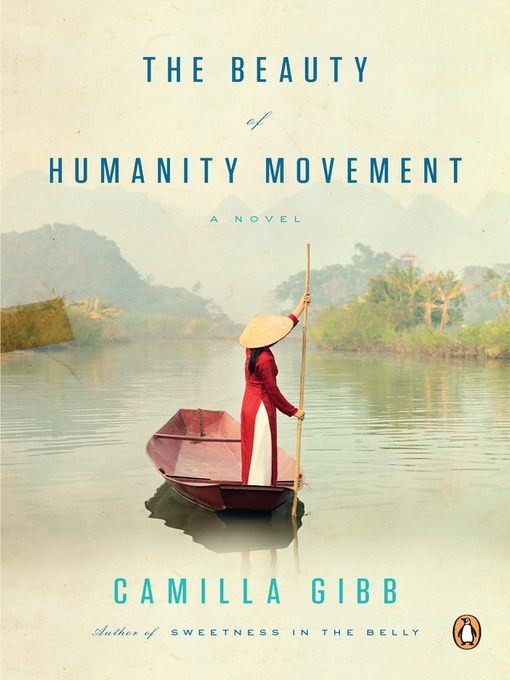
The Beauty of Humanity Movement
A Novel
کتاب های مرتبط
- اطلاعات
- نقد و بررسی
- دیدگاه کاربران
نقد و بررسی

December 1, 2010
London born, Toronto-based novelist Gibb (Sweetness in the Belly, 2006, etc.) focuses her latest novel on a group of dissident 1950s artists and what the ruthless regime did to them.
In Vietnam, food and revolution have always entwined; even Ho Chi Minh was a pastry chef in Paris before he came home and eventually seized control of the fledgling nation. So it's fitting that this novel features at its center the delicious beef noodle soup called pho. The pivotal figure here is Hu'ng, an octogenarian in failing health who's still selling his old-recipe pho to a group of fanatically dedicated customers, but now in an itinerant way, dodging cops as he works from a battered cart. A half-century earlier, when Hu'ng still had his cafe, it became the hangout of a group of artists and intellectuals that Gibb, embroidering on the real story of a similar group, calls the Beauty of Humanity Movement. Enter a young Vietnamese-American woman, Maggie Ly, who left with her mother just before Saigon fell, and whose father they had to leave behind, presumably to a quick death. Maggie grew up in Minnesota, and she's returned—as curator of a luxury hotel's vast collection of indigenous art—largely to see if she can find out anything about her father, an American-educated artist who before her birth was tortured and maimed by the government, and who turns out to have been part of the Beauty of Humanity intellectuals. The other crucial figure, a bridge between young "foreigner" and old cook, is a tour guide named Tu' who has, with his father, been one of Hu'ng's most faithful customers. Gibb provides extravagantly sensuous accounts of the food. But her style tends to the sentimental and overripe, and the characters never quite come alive in the way the setting does.
As a history told through food, this is very good; as a novel, it lacks a little savor.
(COPYRIGHT (2010) KIRKUS REVIEWS/NIELSEN BUSINESS MEDIA, INC. ALL RIGHTS RESERVED.)

November 15, 2010
Much like Amy Tan's The Joy Luck Club, this novel takes a journey into the past for answers, giving us a fictional account of real political upheaval. Maggie Ly travels to Vietnam in an attempt to find out anything about her father's disappearance many years ago. Relying on her own fragments of memory, she meets up with Hung, an elderly street vendor who may have known her father. She also becomes involved with one of Hung's loyal customers, Tu, who represents the new Vietnam and the type of person Maggie might have become had her family not moved to America. Through a series of scenes moving back and forth in time, Gibb (Sweetness of the Belly) unravels the mystery of Maggie's past and creates futures for all the characters involved. VERDICT Well written and engaging, with characters that represent the participants and consequences of a country in the middle of great change, this work is recommended where Tan and similar authors are appreciated.--Leann Restaino, Girard, OH
Copyright 2010 Library Journal, LLC Used with permission.

December 15, 2010
Every morning in Hanoi, people line up to breakfast on a bowl of pho, traditional noodle soup, made by Old Man Hung. An itinerant soup vendor living in a shantytown, Hung once owned a caf' where a group of dissident artists and intellectuals called the Beauty of Humanity Movement met until the Communists shut it down. If Hung is a link to Vietnams past, Tu, the grandson of one of the artists, is a link to its future. It is Tus job as a tour guide to show the sites of Hanoi to visitors from the West. One of these is Maggie, a Vietnamese American art curator who has come to Hanoi to catalog the art collection of the refurbished Hotel Metropole. She also hopes to learn something about her father, an artist, who stayed behind when Maggie and her mother fled to the U.S. Through the very different perspectives of these three, Gibb fluidly takes the reader from the bitter years of war to the Hanoi that has emerged in the reform era, which, despite all its modernization, is still a mystery to many of us.(Reprinted with permission of Booklist, copyright 2010, American Library Association.)

























دیدگاه کاربران